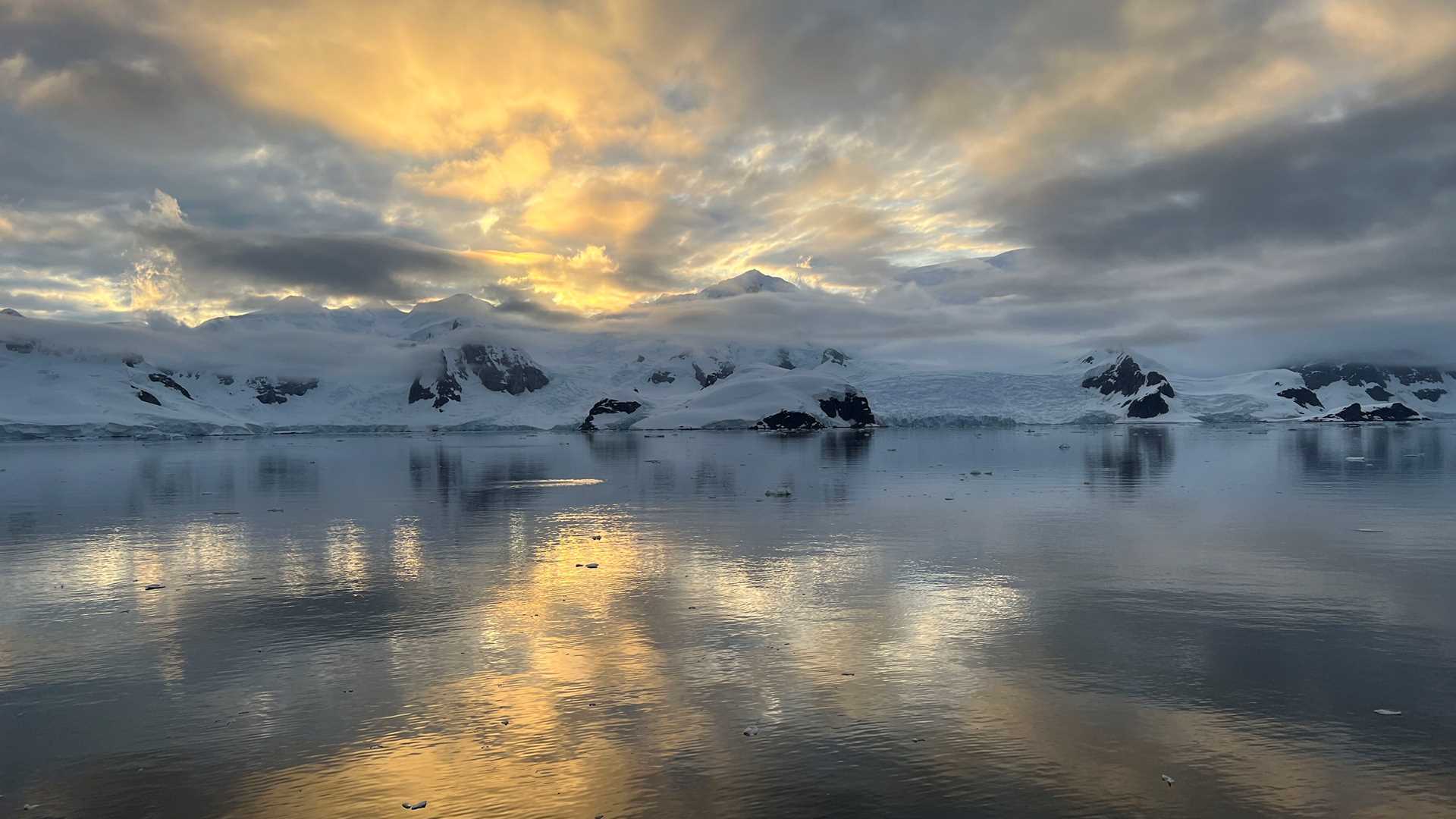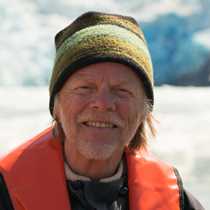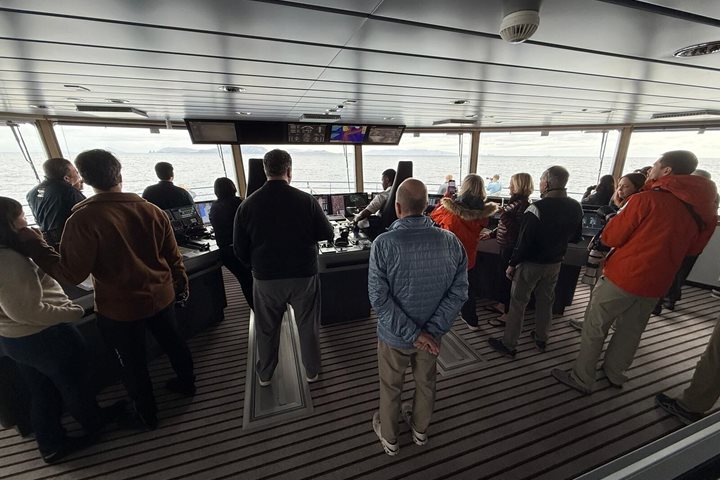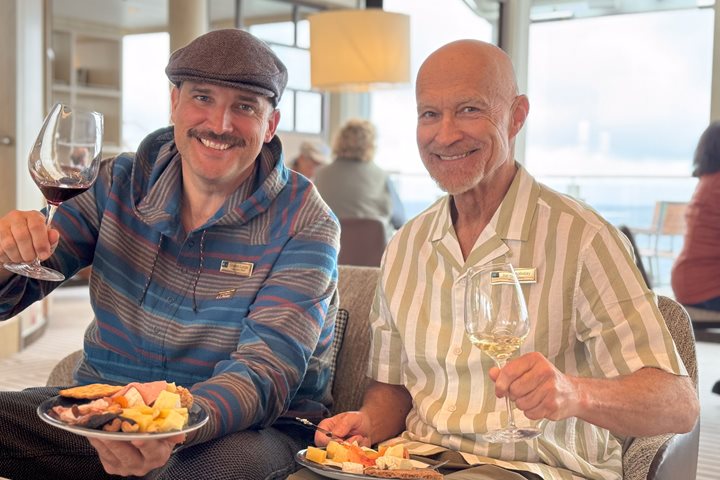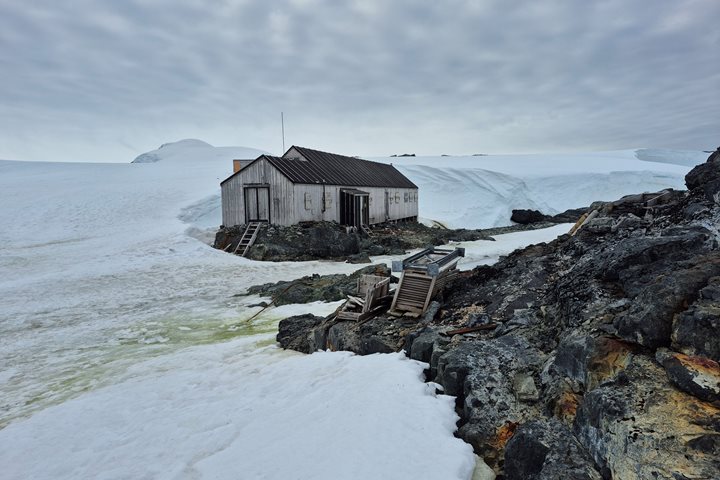Early risers were greeted with an extraordinary sunrise and at least nine humpback whales scattered about in pairs or trios as we entered the aptly named Paradise Bay. The rising sun painted mountaintops a soft, golden hue that slowly crept downward as the day lengthened. The sea state was flatter than a shadow and as reflective as a highly polished mirror, resulting in exquisitely symmetrical images for photographers. Bobbing icebergs produced a gentle slapping sound, and the sky was an impressionist canvas of light instead of paint.
After exchanging morning greetings and pleasantries by radio with the head of the Argentine Brown Research Station, we established our position in Skontorp Cove and launched Zodiacs for two rounds of cruises among icebergs and along the shore. A single humpback whale was observed feeding along the face of a glacier. We also saw leopard, crabeater, and Weddell seals, along with flocks of shags and rafts of purposefully porpoising, playfully popping penguins. The vistas of Paradise Bay were stunning: soaring, snow-covered mountains enveloped to various degrees with wispy clouds, glaciers riddled with vivid blue cracks and crevasses creeping ever so slowly to the sea, and brash ice sparkling like diamonds on the sea surface.
During lunch, we traveled to Neko Harbour, where we briefly walked on mainland Antarctica and took even more photos of the endlessly entertaining gentoo penguins. The day was still– occasionally punctuated by the random, raucous calls of penguins–and brightly sunny, leading many of us to utter those unfathomable words for Antarctica: “I’m too warm!”
But the day was still a puppy and during dinner, we steamed through the fantastically beautiful and narrow Lemaire Channel, famous for the steep cliffs and the glaciers dropping to the sea mere meters from National Geographic Resolution. A golden ‘dusting’ of the highest peaks by the setting sun, snow, several humpback whales, and the cold, howling wind blowing through the gap created an unforgettable experience and a fitting end to our Antarctic Peninsula expedition.

